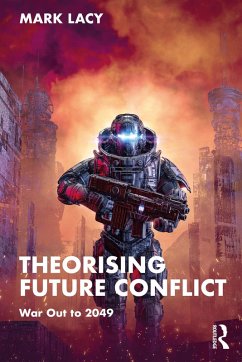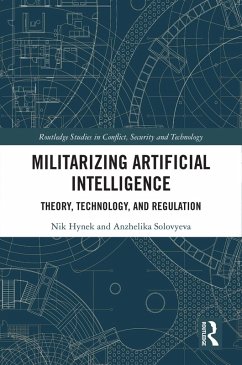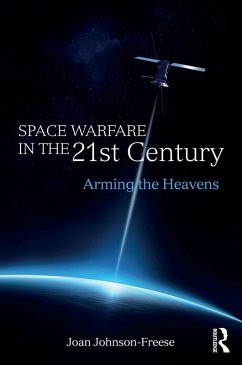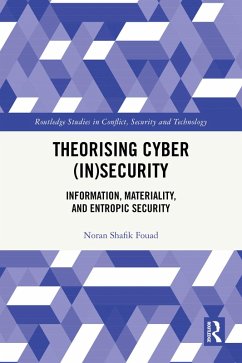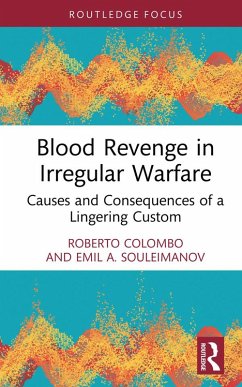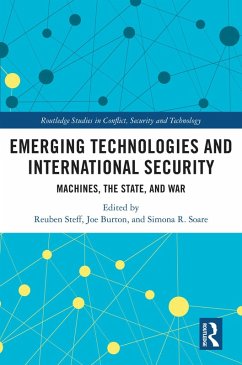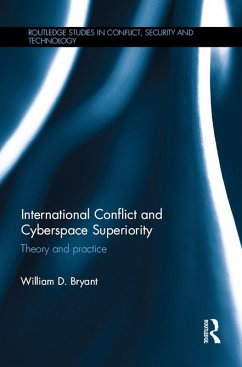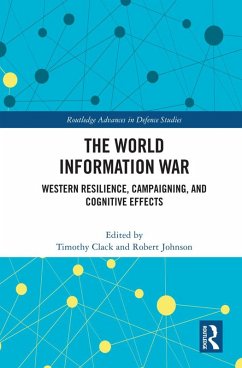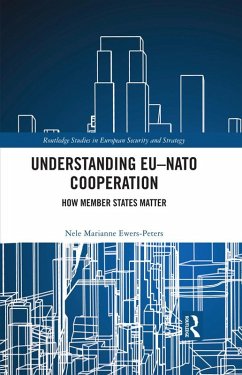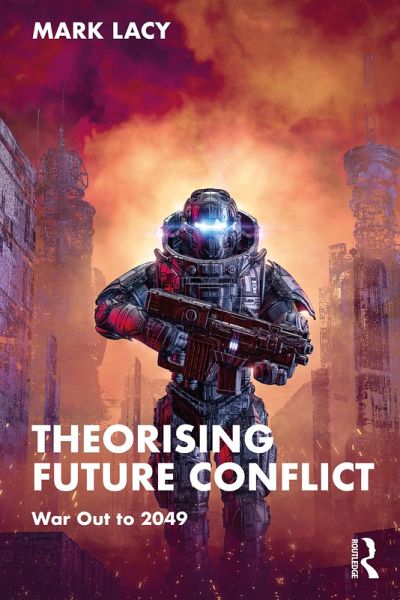
Theorising Future Conflict (eBook, PDF)
War Out to 2049
Versandkostenfrei!
Sofort per Download lieferbar
39,95 €
inkl. MwSt.
Weitere Ausgaben:

PAYBACK Punkte
20 °P sammeln!
This book explores the changing tactics, technologies and terrains of twenty-first century war.It argues that the world in 2049 is unlikely to look like the climate change/artificial intelligence (AI) dystopia depicted in Blade Runner 2049, but nor will it be a world where conflict and war has been transformed by a 'civilising process' that eradicates violence and conflict from the human condition. 2049 is also the year that the US Department of Defense has suggested China will become a world-shaping military power. All states will be engaged in 'arms races' across a variety of new tools and t...
This book explores the changing tactics, technologies and terrains of twenty-first century war.
It argues that the world in 2049 is unlikely to look like the climate change/artificial intelligence (AI) dystopia depicted in Blade Runner 2049, but nor will it be a world where conflict and war has been transformed by a 'civilising process' that eradicates violence and conflict from the human condition. 2049 is also the year that the US Department of Defense has suggested China will become a world-shaping military power. All states will be engaged in 'arms races' across a variety of new tools and technologies-from drones, robotics, AI and quantum computing-that will transform politics, economy, society and war.
Drawing on thinkers such as Zygmunt Bauman and Paul Virilio, the book suggests that future war will be shaped by three broad tendencies that include a broad range of tactics, technologies and trends; the impure, the granular and the machinic. Through discussions of cybersecurity, urban war, robotics, AI, climate change, science fiction and new strategic concepts, it examines how these tendencies might evolve in the different geopolitical futures and types of war ahead of us. The book provides a thought-provoking and distinctive framework through which to think about the changing character of war. It concludes that for all the novel and dangerous challenges ahead, the futuristic possibilities of warfare will likely continue to be shaped by problems familiar to students of international relations and the history of war-albeit problems that will play out in geopolitical and technological contexts that we have never encountered before.
This book will be of much interest to students of critical war studies, security studies, science and technology studies, and International Relations in general.
It argues that the world in 2049 is unlikely to look like the climate change/artificial intelligence (AI) dystopia depicted in Blade Runner 2049, but nor will it be a world where conflict and war has been transformed by a 'civilising process' that eradicates violence and conflict from the human condition. 2049 is also the year that the US Department of Defense has suggested China will become a world-shaping military power. All states will be engaged in 'arms races' across a variety of new tools and technologies-from drones, robotics, AI and quantum computing-that will transform politics, economy, society and war.
Drawing on thinkers such as Zygmunt Bauman and Paul Virilio, the book suggests that future war will be shaped by three broad tendencies that include a broad range of tactics, technologies and trends; the impure, the granular and the machinic. Through discussions of cybersecurity, urban war, robotics, AI, climate change, science fiction and new strategic concepts, it examines how these tendencies might evolve in the different geopolitical futures and types of war ahead of us. The book provides a thought-provoking and distinctive framework through which to think about the changing character of war. It concludes that for all the novel and dangerous challenges ahead, the futuristic possibilities of warfare will likely continue to be shaped by problems familiar to students of international relations and the history of war-albeit problems that will play out in geopolitical and technological contexts that we have never encountered before.
This book will be of much interest to students of critical war studies, security studies, science and technology studies, and International Relations in general.
Dieser Download kann aus rechtlichen Gründen nur mit Rechnungsadresse in A, B, BG, CY, CZ, D, DK, EW, E, FIN, F, GR, HR, H, IRL, I, LT, L, LR, M, NL, PL, P, R, S, SLO, SK ausgeliefert werden.




